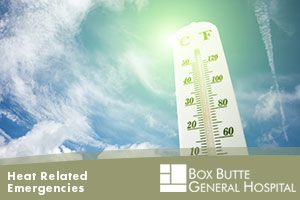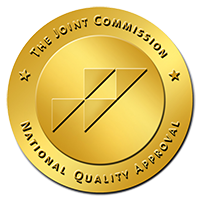Heat Related Emergencies
People that are the most susceptible to the effects of extreme heat include the very young (4 years or less) and the elderly (65 years or more). People that have pre-existing medical conditions such as obesity, diabetes, or heart disease, and those who are socially isolated or financially poor appear to also be most susceptible to the effects of extreme heat. It should be known that air conditioning is the number one preventative factor against heat related injury and death.
Suggestions to avoid the effect of extreme heat (especially for those at higher risk):
- Frequently drinking water
- Avoiding alcohol consumption
- Perform strenuous activities during the cooler part of the day, or avoid doing them at all
- Limit sun exposure during the midday
- Wear light loose fitting clothing
- Find air conditioning (at public place if you do not have it at home)
- Never leave children alone in vehicles
- Check on those at risk for heat related injury or death (elderly, isolated, impoverished)
Educate your family on proper preparation for work or exercise out in the hot summer weather. Preparation includes staying hydrated, having appropriate times for recovery from extreme work or exercise periods, and rest. Water and other appropriate fluid should be readily available and consumed at regular intervals before, during, and after work and exercise activities.
The following is a reference from the CDC for guidance in identification and initial response for heat related emergencies:
Heat Cramps
Signs:
- Heavy sweating during physical exertion
- Muscle cramps or pains
Treatment:
- Stop physical activity
- Drink water or “sports beverage”
- Wait for cramps to go away before you continue physical activity
- Seek professional medical care if cramps last longer than one hour, you are on a low sodium diet, or if you have heart problems.
Heat Exhaustion
Signs:
- Heavy sweating
- Cold, pale, or clammy, skin.
- Fast, weak pulse, nausea & vomiting
- Muscle cramps
- Fatigue, weakness
- Dizzy
- Headache
- Fainting
Treatment:
- Move to a cool place
- Loosen clothes
- Put cool, wet clothes on body
- Take a cool bath
- Sip water
- Seek professional medical care if you are throwing up, your symptoms worsen, or your symptoms last longer than one hour
Heat Stroke
Signs:
- Temperature of 103 F or higher
- Hot, red, dry or damp skin
- Fast strong pulse
- Headache
- Dizzy
- Nausea
- Confusion
- Losing consciousness
Treatment:
- Call 911
- Move the person to a cooler place
- Help lower the person’s temperature with cool clothes or a cool bath
- Do not give the person anything to drink
- Take patient to nearest emergency department



